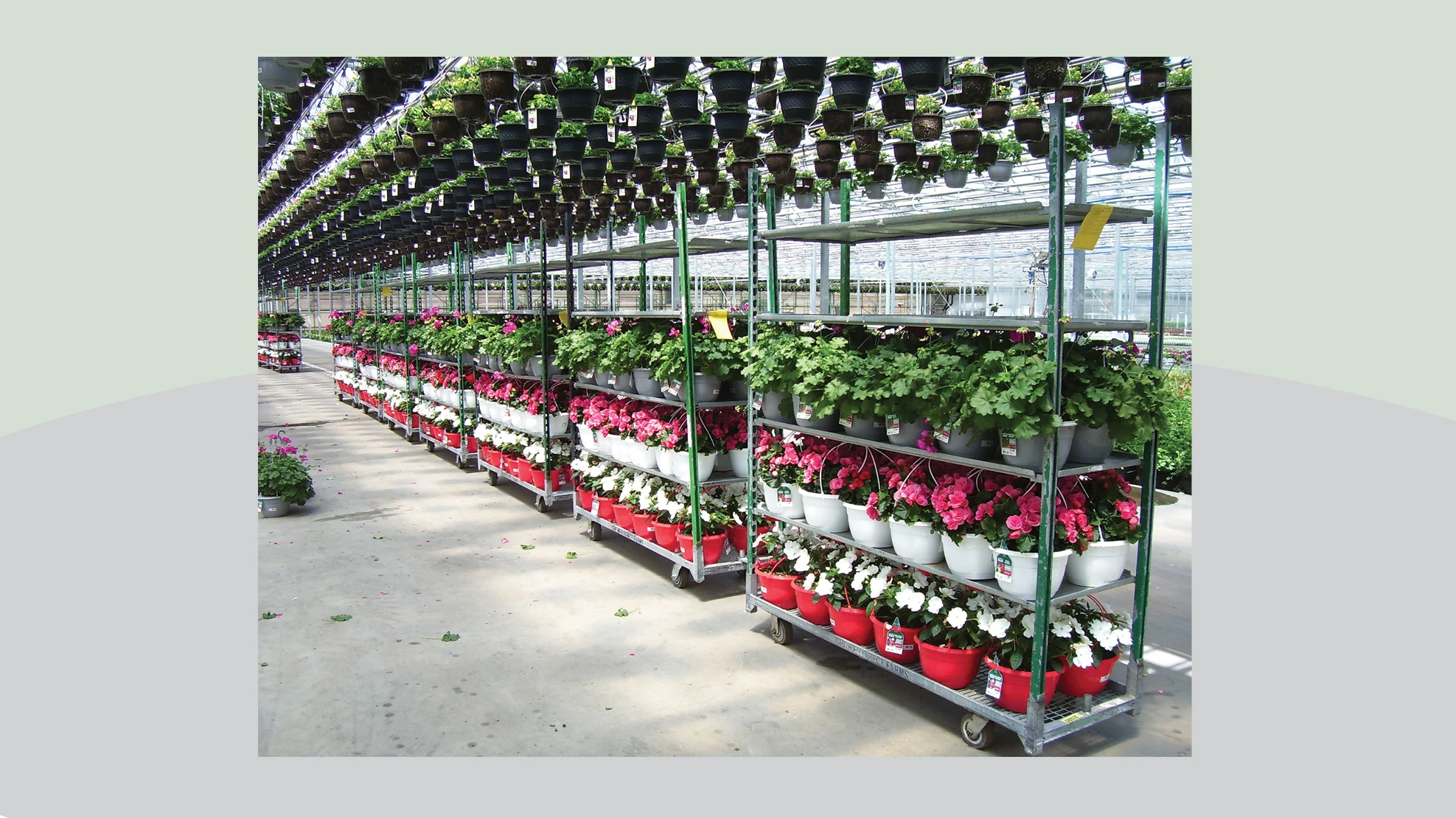
Businesses are exposed to many different types of financial risks and there is a lot of risk in the nursery and greenhouse industry. We already have a ton of exposure on the inventory side because we grow a perishable product. We mitigate liability risk by carrying auto policies with umbrella coverage. Cybersecurity policies mitigate loss if computers get hacked. Of course, worker’s compensation insurance is required in the event a team member gets hurt on the job.
I am not advocating that a grower over-insure itself. You can really go down a rabbit hole on all the different loss coverages available to businesses. But it is prudent to consider coverage on your trade or account receivables (AR) to do business effectively and sleep well at night.
As the cost of producing nursery and greenhouse products continues to rise, more of us are searching for ways to manage our cash flow. The cost of production inputs (from containers, fertilizer, fuel, labor and others) increased 8.4% in 2022 and is projected to increase 3.5% in 2023. Due to the Federal Reserve’s interest rate hikes, the cost of borrowing money — which many nurseries and greenhouses rely on for cash flow management — has also increased.
Cash flow management
Managing AR risk is becoming increasingly complicated as the business landscape continues to evolve with demand, technology and innovation. Our industry employs time-tested and accepted strategies to grow business and maintain operations. Offering trade customers payment terms on credit is one of them. But as I’m sure we’ve all experienced from time to time, it can sometimes be difficult to recover payments from customers who’ve purchased our products on credit.
From COVID-19’s onset, retail and service companies across industries continue to adjust to its impacts, with many facing challenges in recovering credit payments for goods and services they produce. As a result, growers are considering asset insurance as a way to protect their trade accounts.
Having an insurance policy on receivables protects your businesses from negative cash flow caused by delayed, disputed or outright non-payment. It allows nurseries and greenhouses to receive funds more quickly, which helps secure the bottom line and offsets losses from the higher costs of production inputs and borrowing.
In the spring of 2020, Loma Vista Nursery implemented a policy to address accounts receivable uncertainties surrounding COVID-19 impacts and we began looking at insurance policies. We wanted coverage that would be tailored to the needs of different customer segments.
Our policy provides blanket coverage with a set threshold per customer and customized coverage for accounts that require additional protection. It also ensures that in the event of a loss, our business is not interrupted. A comprehensive system reduces exposure by using customer credit reporting and the Dun & Bradstreet D-U-N-S Number to identify potentially risky credits. The policy helps our customers by enabling us to extend higher credit limits because we know the risk is insured.
Access to credit
AR insurance also protects against financial losses from bankruptcy filings. Policies are established as part of nursery operations, which are then placed in trust with accredited insurance companies. This way, customers’ payments can be backed by the security of an insurance policy, ensuring nurseries receive payment even under dire circumstances.
Having an AR insurance policy side-steps the hassle and costs of engaging in legal proceedings when contractual terms cannot be met. This reinforces communications and protects the client relationship.
Mitigate nonpayment risk
A written accounts receivable policy can also help manage risk. This internal policy specifies guidelines about trade customer terms, including what they are and what the maximum amount of credit extended should be. It is important to review the policy regularly and adjust it, as necessary.
We share our policy with our sales team. Our credit manager maintains close communications with the trade company’s accounts payable department. The policy should not be so restrictive that it inhibits sales, but it should help mitigate risk and reduce the chances of nonpayment.
Staying connected with our trade accounts is vital because doing so is just good business. It also helps us understand when flexibility is necessary. Things happen in business and sometimes clients are unable to make on-time payments. Negotiating a payment plan that works for all parties is better to ensure debts are paid off and drastic measures like initiating legal action are prevented.
AR insurance is available through many insurance carriers, and you can customize a policy that best fits your operation’s risk management needs. Blanket coverage is available at a set threshold with options to increase coverage on specific accounts or for specific circumstances. Buy-up coverage is available as well.
The cost of implementing an AR policy depends on the size of the business and the kind of policy purchased. But it is important to consider that AR insurance is an investment in protecting the nursery’s assets over the long-term.
We’ve found that AR insurance is an important tool for managing cash flow and protecting net working capital. By having this safety net in place, you can feel more confident about taking on new clients and managing receivables.
Get curated news on YOUR industry.
Enter your email to receive our newsletters.
Explore the October 2023 Issue
Check out more from this issue and find your next story to read.
Latest from Greenhouse Management
- Society of American Florists accepting entries for 2025 Marketer of the Year Contest
- Sustainabloom launches Wholesale Nickel Program to support floriculture sustainability
- American Horticultural Society welcomes five new board members
- Color Orchids acquires Floricultura Pacific, becoming largest orchid supplier in U.S.
- American Floral Endowment establishes Demaree Family Floriculture Advancement Fund
- The Growth Industry Episode 3: Across the Pond with Neville Stein
- 2025 State of Annuals: Petal power
- Long-term labor solution






